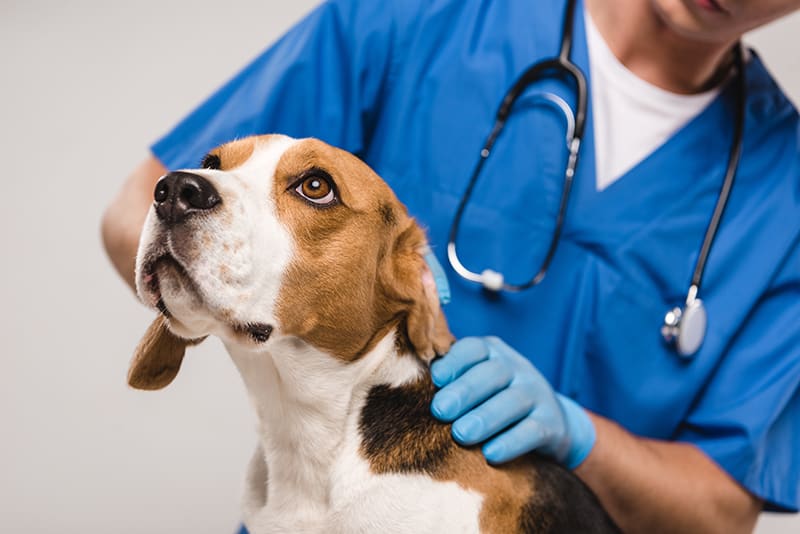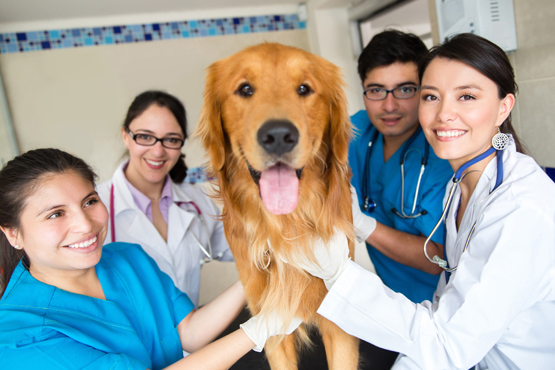Exactly How a Veterinary Oncologist Can Help Improve Your Pet's Lifestyle
Vet oncologists focus on the diagnosis and treatment of cancer cells in animals, playing a critical function in improving their top quality of life. They produce customized therapy strategies that address the one-of-a-kind demands of each animal. Through innovative diagnostics and targeted therapies, these specialists aim to take care of signs and symptoms efficiently. The trip does not finish there. Exploring the complete range of care alternatives discloses even more regarding how these experts can make a significant distinction.

Understanding the Duty of a Veterinary Oncologist

In addition to medical diagnosis, veterinary oncologists establish extensive treatment strategies customized to the needs of each pet dog. These approaches may consist of chemotherapy, radiation therapy, and surgical treatments, aimed at not only prolonging survival however also boosting the overall high quality of life. They provide palliative treatment, concentrating on discomfort administration and comfort for pets facing terminal medical diagnoses. By working together with pet owners, veterinary oncologists assure that animals obtain the most effective and compassionate care possible throughout their cancer cells journey.
Customized Treatment Prepare For Your Pet dog
When a pet dog is detected with cancer cells, creating a customized treatment plan ends up being necessary for resolving their special requirements and circumstances. A vet oncologist meticulously examines the sort of cancer, its stage, and the overall health of the pet dog. This comprehensive assessment enables the production of a tailored approach that may consist of a combination of surgery, radiation treatment, and radiation therapy.
The oncologist also considers the animal proprietor's choices and way of life, making certain that the strategy aligns with their objectives for their family pet's treatment. Pet Cancer Surgery. Treatment strategies are not static; they are routinely assessed and adjusted based on the animal's feedback and any kind of emerging needs. By focusing on individualized treatment, veterinary oncologists aim to improve the effectiveness of therapies while keeping the pet dog's high quality of life. This personalized method fosters a better understanding of the condition, equipping animal proprietors to make educated choices concerning their precious friends' health
Handling Signs and Side Results
Taking care of the symptoms and adverse effects of cancer cells treatment is an essential part of vet oncology. Veterinary oncologists use a range of approaches to alleviate discomfort and boost the general health of pets undertaking treatment. This might consist of making use of anti-nausea medicines to combat vomiting and loss of appetite, which are typical negative effects of radiation treatment. Pain management is additionally focused on, frequently involving the prescription of anesthetics customized to the animal's particular requirements.
In addition, oncologists may recommend dietary modifications, integrating premium, easily digestible foods to sustain dietary consumption. Keeping an eye on blood work is essential to detect any type of adverse reactions to therapy early, permitting prompt treatments. Normal follow-ups enable the vet team to evaluate the pet's feedback to treatment and make essential changes. With these detailed techniques, veterinary oncologists aim to improve the lifestyle for pet dogs dealing with cancer cells therapy obstacles.
Palliative Treatment and Convenience Actions
Palliative treatment plays a critical role in improving the top quality of life for animals detected with cancer, concentrating on comfort and psychological support as opposed to curative therapy. Vet oncologists prioritize discomfort administration, guaranteeing that pets experience marginal pain during their ailment. This consists of making use of anesthetics, anti-nausea medications, and other therapies customized to specific requirements.
In enhancement to pharmacological treatments, environmental alterations can significantly improve an animal's lifestyle. Developing a calmness, comfy room with soft bed linens and easy access to food and water can alleviate stress. Nutritional assistance is likewise essential; oncologists might suggest specialized diets that cater to the pet dog's demands and choices.
Emotional support for both the pet dog and its owners is crucial. Vet oncologists provide advice on Homepage dealing approaches, aiding family members browse the emotional obstacles that go along with a cancer cells medical diagnosis. Inevitably, palliative treatment objectives to guarantee that pet dogs get the dignity and comfort they are worthy of.
Collaborating With Your Regular Veterinarian
Cooperation with a normal veterinarian is crucial for maximizing the treatment of animals with cancer, as this partnership ensures a detailed technique to treatment and lifestyle. The normal veterinarian generally has an in-depth understanding of the family pet's case history, which is essential when developing a therapy strategy. They can properly communicate with the vet oncologist, making certain that all aspects of the pet's health and wellness are thought about.
This collaboration helpful hints permits collaborated treatment, which might consist of normal check-ups, keeping an eye on adverse effects, and adjusting medications as needed. Normal vets can additionally supply psychological support to family pet owners, aiding them browse the complexities of cancer treatment - Veterinary Oncologist. By functioning closely with veterinary oncologists, they can promote a smooth shift between different sorts of care, ensuring that pet dogs receive the most reliable treatments while keeping their comfort and well-being throughout the process. Together, they enhance the general high quality of life for pets facing cancer cells
Often Asked Questions

What Kinds of Cancers Do Veterinary Oncologists Typically Deal With in Pet Dogs?
Vet oncologists normally treat different cancers in pets, consisting of lymphoma, mast cell lumps, osteosarcoma, and soft cells sarcomas. These specialists use sophisticated analysis techniques and treatment alternatives to address the specific needs of each animal.
Just How Can I Prepare My Animal for a Veterinary Oncology Consultation?
Preparing an animal for a vet oncology visit includes celebration medical records, noting signs and symptoms, and preparing concerns. Making certain the animal is comfortable and calm during travel can also greatly enhance the general experience and examination effectiveness.
Are There Any Kind Of Alternative Therapies for Family Pets With Cancer?
Different therapies for pet dogs with cancer frequently include acupuncture, natural medication, and nutritional support. These techniques may enhance traditional therapies, possibly improving general well-being and supplying encouraging treatment during the pet's cancer cells trip.
Exactly how Frequently Should My Animal See the Veterinary Oncologist?
The frequency of check outs to a hop over to here vet oncologist normally relies on the family pet's specific condition and treatment strategy. Routine analyses may be recommended every couple of weeks or months to monitor development and adjust treatments accordingly.
What Costs Are Connected With Vet Oncology Services?
Prices related to vet oncology solutions can differ commonly, including preliminary assessments, analysis examinations, treatment strategies, and recurring treatment. Veterinary Oncologist. Pet dog owners need to prepare for potential costs that mirror the complexity and duration of the therapy required
Veterinary oncologists specialize in the medical diagnosis and therapy of cancer in pets, playing a crucial function in improving their top quality of life. Numerous pet dog owners may not be familiar with the details of vet oncology, comprehending the duty of a vet oncologist is necessary for handling cancer cells in animals. The oncologist likewise takes into consideration the pet owner's preferences and way of life, guaranteeing that the strategy aligns with their objectives for their animal's care. By concentrating on customized care, vet oncologists aim to enhance the performance of therapies while preserving the animal's top quality of life. By working closely with vet oncologists, they can help with a smooth change in between various kinds of care, making sure that animals obtain the most effective treatments while keeping their comfort and well-being throughout the process.